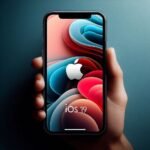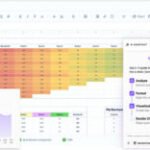Safety researchers of the Georgia Institute of Technology and Ruhr University Bochum discovered two vulnerabilities in the side channel in devices with Apple Name brand chips from 2021 or later. Specifically, the vulnerabilities known as slack and flop credit card information, locations and other personal data. Data can be collected from websites such as iCloud Calendar, Google Maps and Proton Mail via Safari and Chrome.
From January 28, Apple is aware of the vulnerabilities.
“Based on our analysis, we do not believe that this problem poses an immediate risk to our users,” an Apple representative said Arstechnica. According to the researchers, Apple plans to release a patch at an unknown time.
The researchers did not find evidence of threat actors using these vulnerabilities.
What Apple Devices are affected?
According to the researchers, the following Apple devices include vulnerable chips:
- All Mac shooters from 2022 to the present (MacBook Air, MacBook Pro).
- All Mac Table computers from 2023 to the present (Mac Mini, Imac, Mac Studio, Mac Pro).
- All iPad Pro, Air and Mini models from September 2021 to today (Pro 6th and 7th Gen., Air 6th Gen., Mini 6th Gen.).
- All iPhones from September 2021 to the present (all iPhone 13, 14, 15 and 16 models, 3rd Gen.).
What are the slap and flop croquies?
Both vulnerabilities are based on speculative execution, a cyberatcack technique that uses indirect clues such as power consumption, timing and sounds to withdraw information that would otherwise be secret. Contemporary Apple chips accidentally enable speculative execution attacks because they use predictors that optimize CPU use by ‘speculating’. In the case of limp, they predict the following memory address from which the CPU will get data. In Flop, they predict the data value returned by the memory sub -system on the next access by the CPU nucleus.
- Slack enables an attacker to launch an end-to-end attack on the Safari web charger on devices with M2/A15 chips. From Safari, the attacker was able to access email and see what the user browsed.
- Flop allows threatening actors into safari and Chrome web loaders on devices with M3/A17 chips. Once they were inside, they could read the location history of the device, stored calendar events and credit card information.
See: The Chinese company DeepSeek released the most popular AI chatbot in the App Store this week before Openai.
“There are hardware and software measures to ensure that two open web pages are isolated, and prevent one of them (maliciously) from forming the contents of the other,” said researchers Jason Kim, Jalen Chuang, Daniel, Daniel, Daniel, Daniel, Daniel, Daniel, Daniel, Daniel, Daniel, Daniel, Daniel, Daniel, Genkin and Yuval Yarom written Their Georgia Tech website over clapping and flop. “Slap and flop breaks this protection, allowing attackers pages to read sensitive login -protected data from target websites. In our work, we show that this information varies from location history to credit card information. “
The research highlights the dangerous potential of attacks on the channel, which utilizes both clapping and flop. It is difficult to detect or soften his channel attacks because they rely on properties inherently to the hardware.
In March 2024, Apple Silicon runs from another attack on the channel called Gofetch.
What can users do to the vulnerabilities?
Users cannot apply mitigations to these vulnerabilities as the vulnerabilities are rooted in the hardware.
“Apple has communicated to us that they intend to address these issues in an upcoming security update, so it is important to enable automatic updates and ensure that your devices manage the latest operating system and applications,” the researchers written.
TechRepublic has issued Apple for more information.
(Tagstotranslate) Apple (T) Apple iCloud (T) Apple iPad (T) Apple iPhone (T) Apple M4 (T) Apple Mac (T) Apple Safari (T) CyberSecurity (T) Google Calendar (T) ) Google Maps (T) Proton Mail (T) Side channel attack
+++++++++++++++++++
TechNewsUpdates
beewire.org










